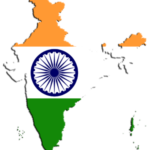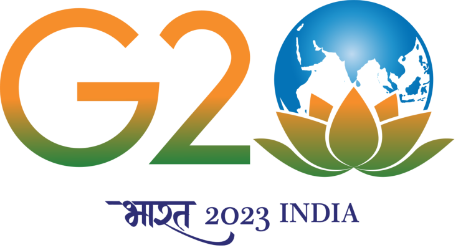A driving license is an official document that permits an individual to drive a motor vehicle. In India, driving licenses are issued by the Regional Transport Office (RTO) of the respective states.
There are two types of driving licenses in India: Learner’s License and Permanent License. A Learner’s License is issued to individuals who are learning how to drive and are required to undergo a driving test after a certain time.
A Permanent License is issued to individuals who have passed the driving test and are qualified to drive motor vehicles on public roads.
To be eligible for a driving license in India, you must be at least 18 years of age and must have a valid Learner’s License. Additionally, you must pass a driving test that includes both written and practical exams.
To apply for a driving license, you must first obtain a Learner’s License by submitting an application form and the required documents, such as proof of identity, age, and address.
After obtaining the Learner’s License, you must then undergo a driving training program and pass the driving test. Once the driving test is passed, you can apply for a Permanent License by submitting the application form, along with the Learner’s License and other required documents.
The documents required for obtaining a driving license in India include proof of identity, age, and address. Proof of identity can be any government-issued document such as Aadhaar Card, Passport, Voter ID, or PAN Card.
Proof of age can be any government-issued document that specifies the individual’s date of birth, such as a Birth Certificate or School Leaving Certificate.
Proof of address can be any document that verifies the individual’s current address, such as Passport, Voter ID, or Utility Bills. Proof of identity can be any government-issued document such as Aadhaar Card, Passport, Voter ID, or PAN Card.
Proof of age can be any government-issued document that specifies the individual’s date of birth, such as a Birth Certificate or School Leaving Certificate. Proof of address can be any document that verifies the individual’s current address, such as Passport, Voter ID, or Utility Bills.
A driving license in India is valid for 20 years or until the age of 50, whichever is earlier. After that, the license must be renewed every 5 years. To renew a driving license, you must submit the required documents and pay the renewal fee.
A driving license may come with certain restrictions, such as the type of vehicle the individual is allowed to drive or the time of day during which you can drive. These restrictions are usually based on your driving abilities, age, and other factors.
An international driving permit is a document that allows an individual to drive in foreign countries. In India, you can obtain an international driving permit by submitting your valid Indian driving license, passport, and other required documents to the concerned authorities.
The international driving permit is valid for one year and can be used in countries that are signatories to the Geneva Convention on Road Traffic. That is all you need to know about a driving license.
A driving license is an official document that permits an individual to drive a motor vehicle. In India, driving licenses are issued by the Regional Transport Office (RTO) of the respective states.
There are two types of driving licenses in India: Learner’s License and Permanent License. A Learner’s License is issued to individuals who are learning how to drive and are required to undergo a driving test after a certain time.
A Permanent License is issued to individuals who have passed the driving test and are qualified to drive motor vehicles on public roads.
To be eligible for a driving license in India, you must be at least 18 years of age and must have a valid Learner’s License. Additionally, you must pass a driving test that includes both written and practical exams.
To apply for a driving license, you must first obtain a Learner’s License by submitting an application form and the required documents, such as proof of identity, age, and address.
After obtaining the Learner’s License, you must then undergo a driving training program and pass the driving test. Once the driving test is passed, you can apply for a Permanent License by submitting the application form, along with the Learner’s License and other required documents.
The documents required for obtaining a driving license in India include proof of identity, age, and address. Proof of identity can be any government-issued document such as Aadhaar Card, Passport, Voter ID, or PAN Card.
Proof of age can be any government-issued document that specifies the individual’s date of birth, such as a Birth Certificate or School Leaving Certificate.
Proof of address can be any document that verifies the individual’s current address, such as Passport, Voter ID, or Utility Bills. Proof of identity can be any government-issued document such as Aadhaar Card, Passport, Voter ID, or PAN Card.
Proof of age can be any government-issued document that specifies the individual’s date of birth, such as a Birth Certificate or School Leaving Certificate. Proof of address can be any document that verifies the individual’s current address, such as Passport, Voter ID, or Utility Bills.
A driving license in India is valid for 20 years or until the age of 50, whichever is earlier. After that, the license must be renewed every 5 years. To renew a driving license, you must submit the required documents and pay the renewal fee.
A driving license may come with certain restrictions, such as the type of vehicle the individual is allowed to drive or the time of day during which you can drive. These restrictions are usually based on your driving abilities, age, and other factors.
An international driving permit is a document that allows an individual to drive in foreign countries. In India, you can obtain an international driving permit by submitting your valid Indian driving license, passport, and other required documents to the concerned authorities.
The international driving permit is valid for one year and can be used in countries that are signatories to the Geneva Convention on Road Traffic. That is all you need to know about a driving license.
Conclusion
As we all know; the driving license is not just a legal permit but a crucial document ensuring road safety and responsible driving. Its comprehensive issuance process involves testing and verification, promoting adherence to traffic rules. If you are also planning to apply for new driving license or want any related services information about it, Digital Seva Portal is at the forefront of providing this facility to you.
We are India’s best Digital Seva Portal company. Today lakhs of people from all over India relate to us whose years of trust make us the best CSC registration services provider in India. We also have a wide range of Digital Seva services such as Adhaar cards, PAN cards, tax filling, and more than 50+ at very affordable costs at PAN India. The driving license plays a pivotal role in regulating and standardizing road behavior, contributing to safer roads and an organized transportation system in society.


